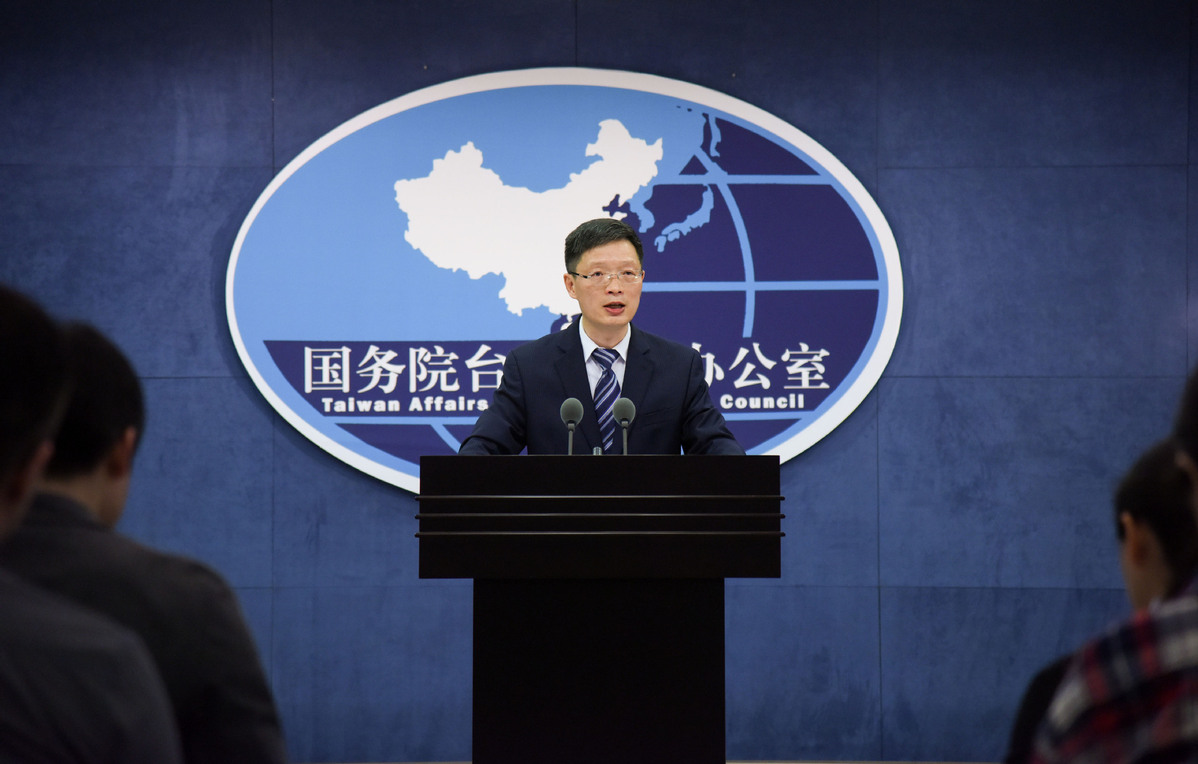
An Fengshan, spokesman for the Taiwan Affairs Office of the State Council, answers questions at a press conference in Beijing on March 28, 2018. (Photo: Xinhua)
Thanks to the Tsai Ing-wen administration's "pro-independence" stance and its refusal to accept the 1992 Consensus that there is only one China, Taiwan has once again attracted international attention. The island was not only barred from attending the World Health Assembly but also lost two more "diplomatic allies" in the Dominican Republic and Burkina Faso this month.
As the fourth country to break off its "diplomatic" relations with Taiwan during Tsai's term in office, Burkina Faso has dealt a huge blow to the Tsai administration. And its decision is in line with a string of similar moves by African states since 2000.
With only 18 "countries that have diplomatic ties" with it, Taiwan is left with very limited space for international maneuverings. And unless Tsai's Democratic Progressive Party changes its "pro-independence" stance and accepts the one-China principle, it will find itself in an even tighter situation. In fact, the island lost its observer status in the International Civil Aviation Organization and the World Health Organization last year.
Most importantly, Taiwan has been recognized as an integral part of China by most of the countries in the world.
Since most of the countries have benefited from China's rapid economic growth, they will stick to the one-China principle and sever "ties" with the island in their own interest. And the huge potential of the Chinese mainland's market of more than 1.3 billion people will prompt them to honor their promise to accept the one-China principle and establish diplomatic ties with Beijing.
However, the Tsai administration still insists on adopting the wrong approach toward the mainland. Two days after Burkina Faso's announcement to sever "diplomatic ties" with Taiwan, Republican Senator Cory Gardner, chairman of the US Senate Foreign Relations Subcommittee on East Asia, the Pacific, and International Cybersecurity, paid an unscheduled visit to the island to hold a high-ranking meeting with Tsai on May 26.
The Tsai administration must understand that countries choose to maintain or sever "diplomatic ties" with the island to meet their own needs, and they will not change their decision simply because of protests or threats by Taiwan or some US senators.
Tsai will only increase the island's problems if she continues to play the role of a pawn on the US' chessboard. Besides, Washington's move to enhance "US-Taiwan exchanges" will only undermine Sino-US ties and send the wrong message to Taiwan, as Washington will never risk a military confrontation with Beijing for the sake of the island.
Moreover, if Taipei tries harder to move closer to Washington to deal with the mounting pressure from Beijing, its problems will become more complex. Therefore, if Taiwan wants to expand its room for international maneuverings, the Tsai administration has no choice but to accept the one-China principle.
Chinese compatriots on both sides of the Straits have the capability and wisdom to solve their problems, by doing what the Kuomintang did as the ruling party in Taiwan from 2008 to 2016. Only on the basis of stable and sound cross-Straits ties, for which it has to accept the one-China principle, can Taiwan widen its maneuvering space on the international stage.
(The author is a professor at the Institute of Taiwan Studies, Beijing Union University.)


